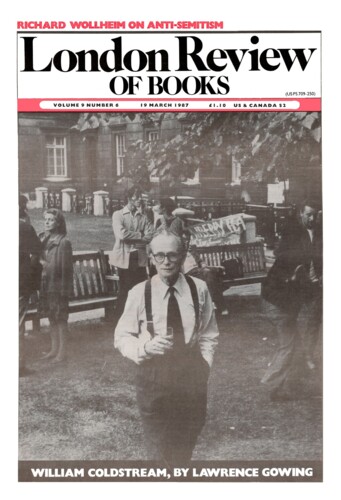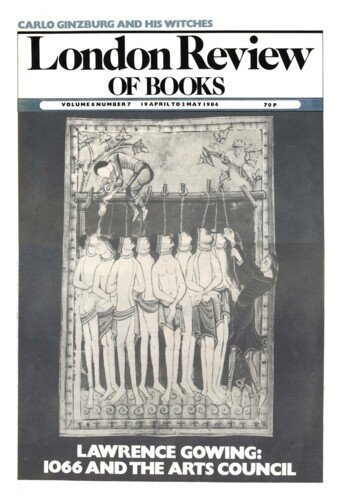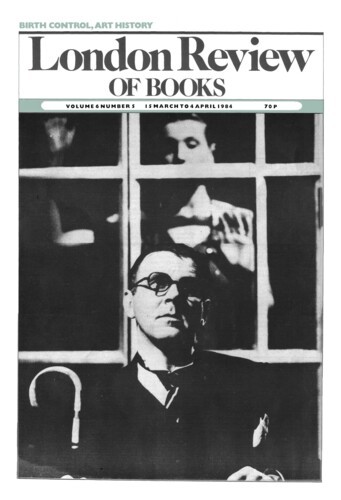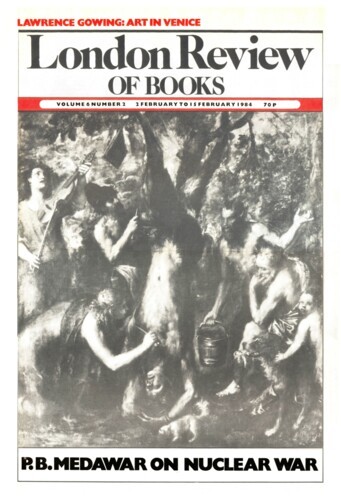Coldstream
Lawrence Gowing, 19 March 1987
Thinking far away about my friend and teacher, who died a fortnight ago, I am aware of how many owed to William Coldstream, not necessarily, as I did, the circumstances of their whole lives, but the terms of reference through which they came to the painting and thought of their time. It must have been in 1936 that I met him at the suggestion of W.H. Auden, the friend of a friend, in the pub in Charing Cross Road nearest to Soho Square. I have told the story often – Auden had written: ‘You want to get into film because you think it is the art of the future. It isn’t. Art is the art of the future’. Coldstream looked over his shoulder back towards the offices in Soho Square. ‘My life puts whole districts of London out of bounds’. Something neither furtive nor taciturn, but functionally economical with words, put an 18-year-old, on adult ground for the first time, at his ease. He asked me what I was painting and forbade wallpaper in the background of a picture of my sister. ‘One can’t paint wallpaper any longer’. He must have thought I had a Vuillard-type pattern in mind.’




